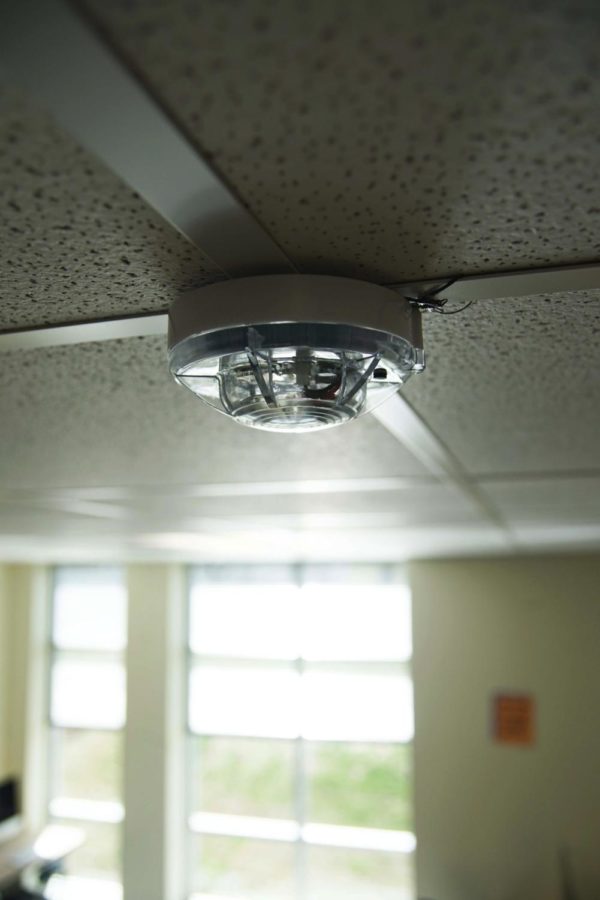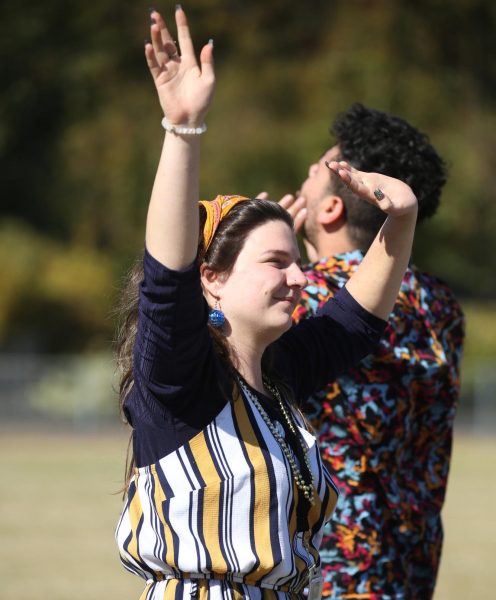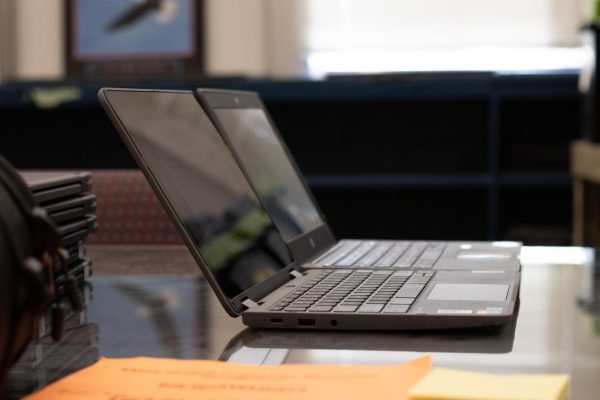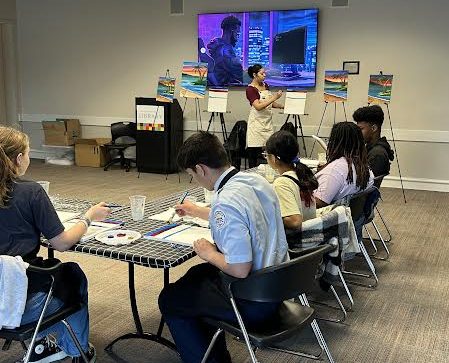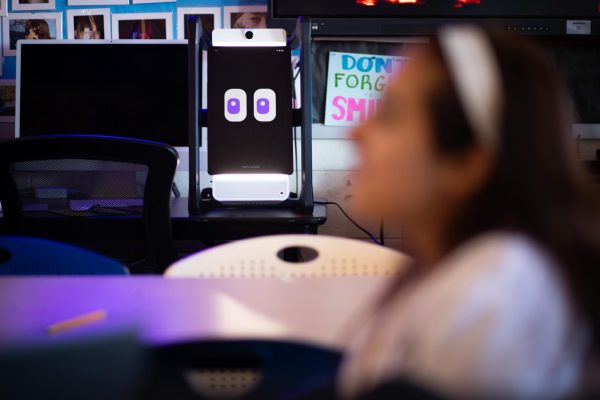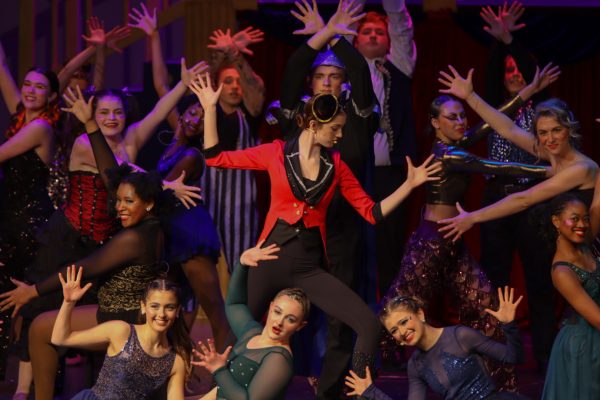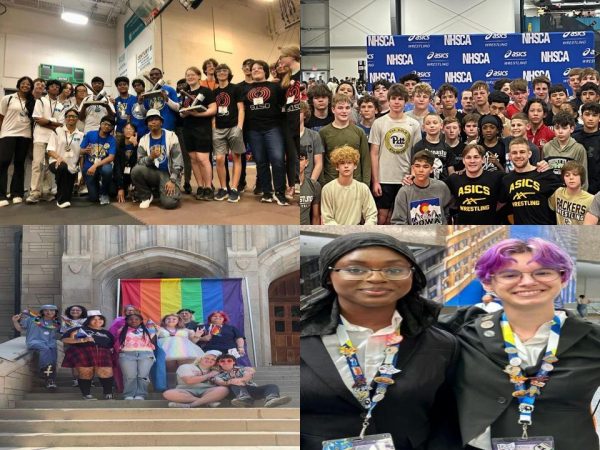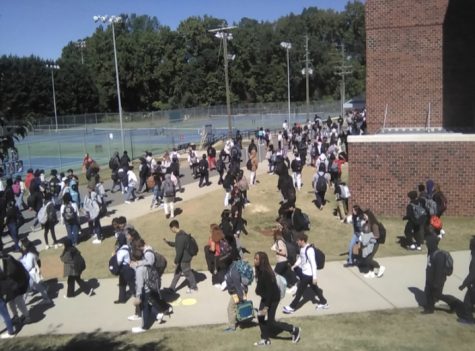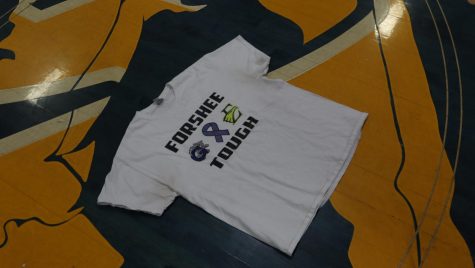Safe and Sound: CMS works to improve school security
Random searches, emergency beacons and security training for all staff.
At first glance, a school might not be what would first come to mind when these safety measures are mentioned, but earlier this year, Charlotte Mecklenburg Schools (CMS) enacted these policies in an attempt to protect the schools and students.
One of the aforementioned measures included installing a Crisis Alert System in every school. CMS is planning to upgrade the emergency badge system by pairing it with a multi-colored beacon alert system found in classrooms and hallways. The other measures also include starting safety screenings across the district, improving video surveillance, enhanced locks, active survival training, better monitoring of social media and increased mental health support for students.
Sophomore Marylyn Ngo believes that CMS had good intentions for this new policy.
“Schools in general try to keep violence away from their community, and what CMS might be trying to do is keep the learning environment safe,” Ngo said.
After posting an overview of what safety screenings would entail on their instagram, CMS received backlash from many students opposed to the new policy of the screenings. What many students don’t know, however, is what comes along with the screenings. Ngo was originally opposed to what CMS announced, but shifted her views after learning more.
“I mostly support what they’re doing, like with the improved locks and teacher training, but I don’t trust the way they’re doing random school searches,” Ngo said. “It’s really breaking the trust between the students and the officials because they’re making it seem like all students are threats of danger, when most are not.”
Along with Ngo, junior Skyler Strzelecki has strong feelings about the new policy.
“These screenings hurt human safety instead of helping them,” Strzelecki said. “The idea of screening students as a way to prevent potential attacks ignores why there could be a threat of attack in the first place. The ‘see something, say something’ policy has been helpful at East, why push back the progress?”
On the other components of the new policy, Strzelecki had a similar mindset to Ngo’s.
“I do believe a lock policy will help, especially in terms of a threat from outside of the campus,” Strzelecki said. “As for mental health, I am fully on board with that. It is one of the best things we can do to prevent attacks, along with having a support system in school for people who need it.”
Strzelecki does have opinions on how to make the situation better for both teachers and students alike.
“They should work with the communities in schools more, like by beginning more inclusive clubs, more extracurriculars for the students, and having a larger support staff,” Strzelecki said. “If students can have just one staff or faculty member that they can talk to about their problems and issues either in or out of school, this could be very beneficial.”
No matter what the critics say, CMS is going to carry out these rules, and they have already begun the screenings. The schools are randomly selected, and out of each random school, select classes may be randomly chosen and are screened. CMS went over what would be included in each type of search on their website, stating that the safety of the students and staff was their first priority and that all searches will not be announced beforehand. Knowing the inevitable backlash, CMS also said on their website, “We wish safety screenings were not needed, but we must keep weapons out of schools.”
“If everyone knew CMS’s motives behind the change and everything that it included, people would definitely change their opinions,” Ngo said. “I think we should do the searches, but we should only do it of the people who are being suspected of possession of drugs and weapons, as to not break the trust of more students than necessary.”
CMS has already initiated the screenings and the other sections of the policy. For now, the best thing that students can do is stay safe, talk to a trusted faculty or staff member as needed and practice the ‘see something, say something’ policy.
“We need to change the culture so that we can be seen as someone who can prevent, not just someone who can attack,” Strzelecki said.
Your donation will support the student journalists of East Mecklenburg High School. Your contribution will allow us to purchase equipment and cover our annual website hosting costs.



